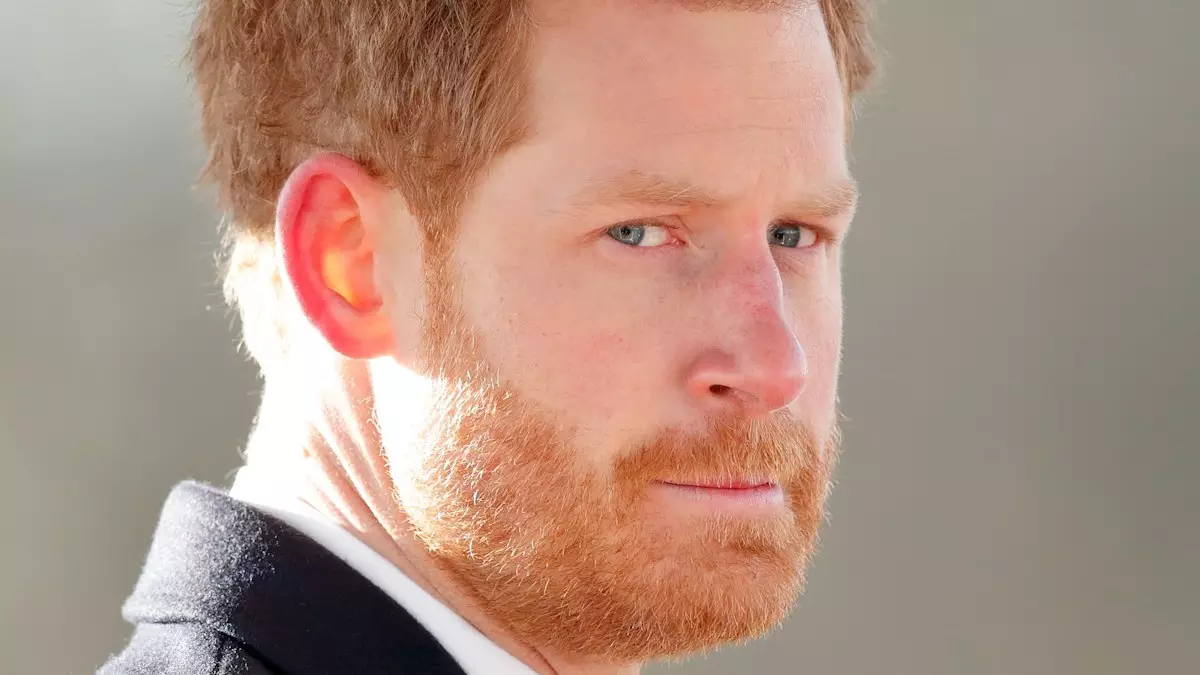Prince Harry’s legal journey against Rupert Murdoch’s News Group Newspapers is a reflection of his ongoing struggle not just for personal justice, but also for what he perceives as systemic accountability within the media landscape. As the trial begins, the complexities of his case reveal the intersection of celebrity culture, media ethics, and the quest for privacy. This article aims to dissect the nuances of Harry’s legal fight and the broader implications of his pursuit, making it clear that this is more than a mere personal vendetta—it is a statement against the perceived excesses of tabloid journalism.
Harry’s Decision to Stay Away: A Strategic Move?
In a surprising twist, Prince Harry has opted not to attend the initial proceedings of his trial in London. Initially rumored to be present for the opening day, the Duke’s absence raises questions about strategy and personal safety. Reports indicate that he could have received “limited police protection” during his visit, yet Harry has chosen a path that emphasizes his focus on the legal process rather than the public spectacle. This decision is particularly insightful when considering the ongoing scrutiny Harry and his family face regarding their security arrangements—an issue they have been battling since stepping back from royal duties.
At the crux of Harry’s legal battle are serious allegations against NGN, including unlawful information gathering, phone tapping, and other forms of privacy invasion that have haunted many celebrities over the years. Harry’s claims, which span from 1996 to 2011, align with broader narratives of media malpractice, yet he uniquely positions himself as one of the few who continue the fight through formal legal channels. This persistence embodies a challenge to a media system he believes has eroded public trust—one that he has described as both personal and deeply significant to the integrity of journalism.
The Testimonies of Other Plaintiffs
Unlike Harry, many other claimants, including prominent figures like Hugh Grant and Sienna Miller, have settled their cases against NGN. Grant’s public remarks about the daunting financial implications of pursuing a trial underscore a disheartening reality for many. He articulated the contention that even in cases where the evidence seems strong, the risks associated with litigation can overshadow the benefits of pursuing justice. Harry’s commitment to progressing with his case, despite witnessing others opt for settlement, argues for a different perspective—one which emphasizes the importance of confronting perceived misconduct directly, regardless of the potential personal cost.
A Window into His Determination
At the New York Times’ DealBook Summit, Harry expressed a strong commitment to holding those he believes responsible for misconduct accountable. He made an impassioned statement about the importance of journalism, indicating that a few journalists’ unethical actions should not discredit the entire profession. His passionate assertions reveal a deep belief that media integrity can and should be restored, and position him as an advocate for accountability in an industry that has historically sidestepped responsibility.
Harry’s ongoing battles extend beyond just the media; they also encompass his complicated relationship with the British royal family. Recent reports suggest that an offer was made for him to stay at Buckingham Palace, which he declined, further illuminating the rift between Harry and King Charles. The fallout from his decision to step back from royal duties has left Harry devoid of taxpayer-funded security, a sensitive matter that he has fought to address in various legal capacities. This interplay between his personal and public life illustrates the profound tensions that define his current existence.
A Broader Perspective on Media Accountability
This trial marks a significant chapter in Harry’s life—a public figure navigating his identity in the aftermath of intense media scrutiny. His determination to pursue accountability through legal channels not only speaks to personal grievances but also underscore a larger fight for integrity in journalism. The cynicism surrounding modern media practices and the erosion of public trust pose real challenges to both the industry and its consumers. By championing accountability, Harry’s actions echo a desire for a future where media represent truth rather than sensationalism.
Ultimately, Prince Harry’s legal challenges against NGN encapsulate a multifaceted struggle that intertwines personal advocacy, familial relationships, and broader societal issues regarding media ethics. As he prepares to testify in February, his fight raises critical questions about the very nature of privacy, accountability, and the role media plays in shaping narratives about public figures. One thing is clear: this isn’t merely a story of royalty—it’s a pivotal moment in the ongoing discourse about journalistic integrity and public trust, which Harry is determined to confront head-on.

Leave a Reply